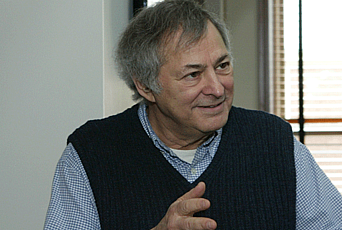
The Future of Systems Biology
In the last 65 years of biology, we have witnessed three changes in the dominant paradigm employed to make progress in the life sciences; the systems biology of organisms (300 BC to 1950 AD), molecular biology and genetics employing a reductionist approach (1950 to 2000), and the systems biology of molecules, cells, organs, organisms, and populations (2000 into the future) that requires scientists trained in the more quantitative sciences so as to extract information from large datasets of experiments and create hypotheses and models that can and are then tested experimentally in a laboratory or the environment. The future of systems biology is clearly linked to testing ideas in the laboratory and in natural populations, employing the tools of molecular biology. The structure of the biological sciences will become like physics, with theorists and experimentalists working together to solve problems.
Read more about the evolution of biology and its emerging areas of study from Arnold J. Levine, Professor Emeritus in the School of Natural Sciences, in Current Opinion in Systems Biology at ScienceDirect.


